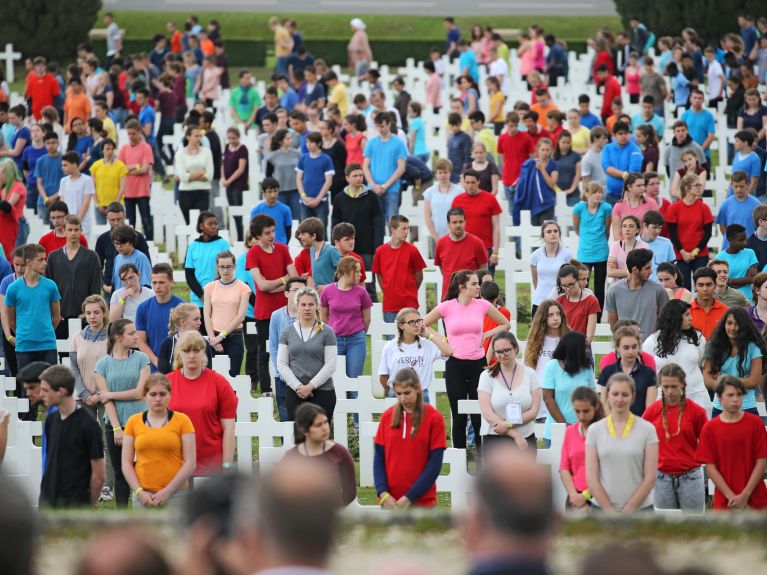How to achieve peace?
100 years after the end of the First World War, young people from 47 countries meet in Berlin to gather ideas for peace.

“Youth for Peace – 100 Years after World War I, 100 Ideas for Peace” is the name of the project of the Franco-German Youth Office (DFJW), to which 500 young people between the ages of 15 and 22 from 47 countries will travel to attend in Berlin. From 14 to 18 November 2018, they will develop ideas for peace in workshops. We spoke with the special representative of the project, Isabel Schäfer.
Mrs Schäfer, for many young people in Europe, peace is a matter of course today. Why should they care about the First World War?
The joint work of reappraising the war isn’t over yet. The story of the First World War is told differently in France and in Germany. That’s why it is important for young people to bring the diverse memories closer together and to start a dialogue. Since 2014, the DFJW has been supporting projects that encourage young people to reflect on the effects of the First World War.
What do you hope for from these encounters?
It’s above all about developing a common European culture of remembrance of the First World War. The exchange between the participants should lead to illuminating the different perspectives on the war. In workshops on “Overcoming War, Making Peace”, the young people will develop 100 ideas for peace, which will be passed on as suggestions on the last day of the workshop to the presidents of Germany and France, Frank Walter-Steinmeier and Emmanuel Macron.
Our concern is a common European culture of remembrance of the First World War.
What determined the selection of participants?
The young people applied via an open international tender. We put special emphasis on diversity and participation. The applicants should be interested in the topic and be committed to civil society. In order to ensure the widest possible diversity of opinions, we paid attention to a gender balance in the selection of participants and included young people from all educational and social backgrounds.
You say that the DFJW has been concerned with World War I for some time. What role in this does the conference in Berlin play?
“Youth for Peace” joins in a remembrance cycle that has been going on since 2014. There have already been two major encounters. One was in 2014 at the Hartmannswillerkopf in the French Vosges with about 100 participants, and a second in 2016 at Verdun with over 4,000 young people. The Youth Exchange in November 2018 is the concluding event of the remembrance cycle.
Conference from 14 to 18 November 2018 in Berlin
© www.deutschland.de
